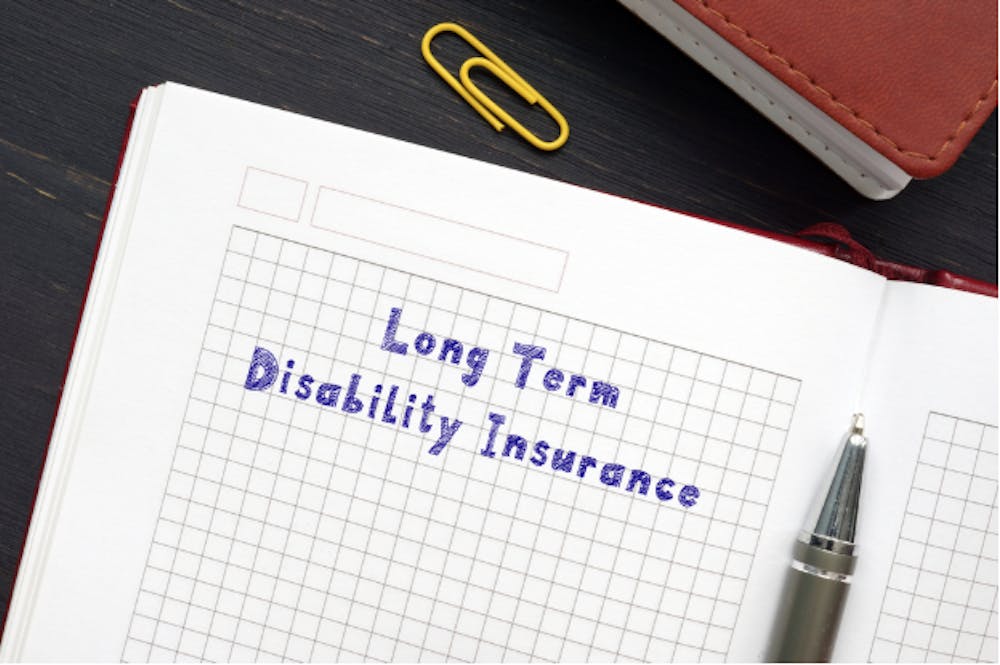Have you been unable to work due to an illness or injury? If so, you may be eligible for long-term disability benefits. Claiming your own can be tricky and overwhelming, so we created this guide! Here, we'll walk you through all the steps required to understand the process of making a successful claim for long-term disability benefits. We'll explain how benefits are provided, who is eligible, and how the decision about benefit approval is made. We will also provide tips to help you submit the strongest possible application and maximize your approval chances. So let's get started!
Understand the Definition of Disability - Know what qualifies as a disability and how it is typically defined
Disability is a complex topic that affects millions of people around the world. Understanding what constitutes a disability is crucial to providing necessary support and resources for those who need it. According to the World Health Organization, a disability is defined as a limitation in functioning caused by a physical, sensory, cognitive, or mental condition. This can include anything from blindness or deafness to learning disabilities or chronic illnesses. The key is that the condition must significantly impact a person's ability to perform daily activities. By recognizing and defining disabilities, we can work towards creating a more inclusive and accommodating society for all individuals.
Gather Necessary Documentation – Collect medical records, statements from your doctor, and other relevant information
When it comes to gathering the necessary documentation for a medical issue, it can often feel like a daunting task. However, having all the relevant information can ensure proper treatment and care. This may include medical records from previous visits, statements from your doctor, and any other pertinent information related to your condition. Collecting and organizing this information makes you feel more empowered and confident in your healthcare decisions. Don't hesitate to contact your healthcare provider or other resources for assistance gathering the necessary documentation. After all, your health and well-being is the top priority.
Submit a Claim to Your Insurance Company – Provide all the necessary documentation when submitting your claim
Submitting a claim to your insurance company can be daunting, but getting it right the first time is important to avoid any unnecessary delays or denials. One of the most crucial aspects of the process is providing all the necessary documentation when submitting your claim. This includes receipts, medical bills, police reports, and other relevant paperwork. Double-check that all the information is accurate and up-to-date before submitting your claim to ensure you receive the reimbursement you deserve. While it may take some extra time and effort to gather all the required documentation, it's well worth it, in the end, to get your claim processed smoothly and efficiently.
Prepare for an Independent Medical Evaluation – This may be required for certain claims and is conducted by an unbiased third-party
Preparing for an Independent Medical Evaluation can be a daunting task. Still, with the right mindset and organization, obtaining a fair assessment of your medical condition can also be a valuable opportunity. An Independent Medical Evaluation, or IME, is often required for insurance claims, legal cases, or worker's compensation disputes and is conducted by a third-party medical professional with no bias toward any party involved. It is important to arrive prepared with all relevant medical records and a clear understanding of the purpose of the evaluation. Remember, the goal is to get an accurate assessment of your condition, so be honest and forthcoming with your medical history and symptoms. With proper preparation, the IME can provide valuable information that may help you receive the compensation or treatment you deserve.
Respond to Requests for Additional Information – You may be asked to provide further evidence in support of your claim
As you pursue any type of claim, preparing for potential follow-up requests from the appropriate authorities is important. This may include having to provide further information to support your case. While it can be frustrating to navigate these additional inquiries, taking the time to address them thoroughly and professionally could make all the difference in getting the desired outcome. So, don't let this one step weigh you down - instead, approach it with dedication and a sense of purpose, knowing that what you do now could greatly impact your success later on.
Monitor Your Claim Status – Make sure you stay up-to-date on the progress of your claim review process
Filing a claim can be stressful, but staying dark about its progress only adds to the anxiety. That's why it's essential to monitor your claim status closely. By monitoring its progress, you can ensure that any issues or delays are addressed promptly. Moreover, it helps you prepare for any next steps or actions that need to be taken. Every case can have unique challenges, from medical claims to car insurance claims, but by proactively checking your claim status, you can ensure that nothing goes unnoticed. So why wait? Take control of your claim process and check its status today.
In summary, successfully filing a disability insurance claim can feel like a job. However, with the right information and preparation, it is possible to get organized and get through the process. You must first understand what qualifies as a disability and gather together all required documentation. Then you can submit your claim to your insurance company and prepare for any independent medical evaluations that may be requested. Ensure you respond promptly if the insurer requests additional information while monitoring your claim's status. With the tips listed above, gaining clarity on this complex process may be manageable.
This post is provided by a third party who may receive compensation from the products or services they mention.


